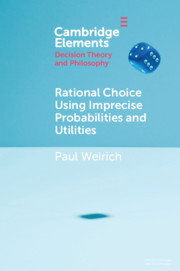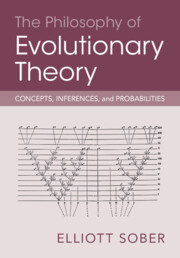Rational Choice Using Imprecise Probabilities and Utilities
An agent often does not have precise probabilities or utilities to guide resolution of a decision problem. I advance a principle of rationality for making decisions in such cases. To begin, I represent the doxastic and conative state of an agent with a set of pairs of a probability assignment and a utility assignment. Then I support a decision principle that allows any act that maximizes expected utility according to some pair of assignments in the set. Assuming that computation of an option's expected utility uses comprehensive possible outcomes that include the option's risk, no consideration supports a stricter requirement.
Product details
February 2021Adobe eBook Reader
9781108608039
0 pages
This ISBN is for an eBook version which is distributed on our behalf by a third party.
Table of Contents
- 1. Introduction
- 2. Imprecision
- 3. Rational imprecision
- 4. Probabilism
- 5. The expected-utility principle
- 6. Norms for imprecise attitudes
- 7. The permissive principle of choice
- 8. Sequences of choices
- 9. Choices in games of strategy
- 10. Conclusion�.




